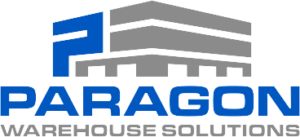A Complete Guide to Third Party Logistics
(the following is a summary of the article provided in the link)
If you are running a business and want to focus on your core competencies such as product development and marketing, it is recommended to use a third-party logistics (3PL) partner. A 3PL company can handle many of the fulfilment processes that are typically managed in-house, including warehousing and storage, inventory management, picking and packing, shipping and receiving, delivery tracking, assembly kitting and customization, managing returns, freight forwarding, and customer support.
There are several benefits of using a 3PL partner. First, you can concentrate on your core competencies while leaving the logistics tasks to the experts. Second, a 3PL provider can simplify global expansion, as they have experience in supply chain management, shipping documentation, and accounting duties. Third, you can cut storage costs as 3PL warehouses have higher order values through their retail partners, and you can reinvest the rent money back into the business. Fourth, working with a 3PL provider can accelerate business growth as you don’t have to spend time training staff on new equipment, and you can scale up without being stuck with the lease of a warehouse that is no longer big enough. Fifth, you can have access to better systems and technologies that are otherwise too expensive for small businesses, resulting in faster fulfilment and happier customers.
However, there are also some downsides to using a 3PL partner. For instance, the fulfilment of orders containing products with low prices, thin margins, or lengthy fulfilment times may be unfeasible to outsource. Also, working with a 3PL provider can be costly, requires an upfront investment, and may limit your control and oversight over the fulfilment processes.
If you decide to use a 3PL provider, it is important to choose the right one that aligns with your business requirements. A 3PL provider must be profitable for your business, and you need to factor in the ongoing and onboarding costs before agreeing to a partnership. Moreover, you need to ensure that your 3PL partner has the right tools and facilities for your industry’s specific requirements, such as cold storage for food retailers.
Finally, there is another method of outsourcing logistics known as fourth-party logistics (4PL). While 3PL providers only deal with their allotted portion of the order fulfilment process, 4PL providers manage your entire supply chain. It is recommended for medium-large enterprises, while 3PL providers are better suited to small businesses.

